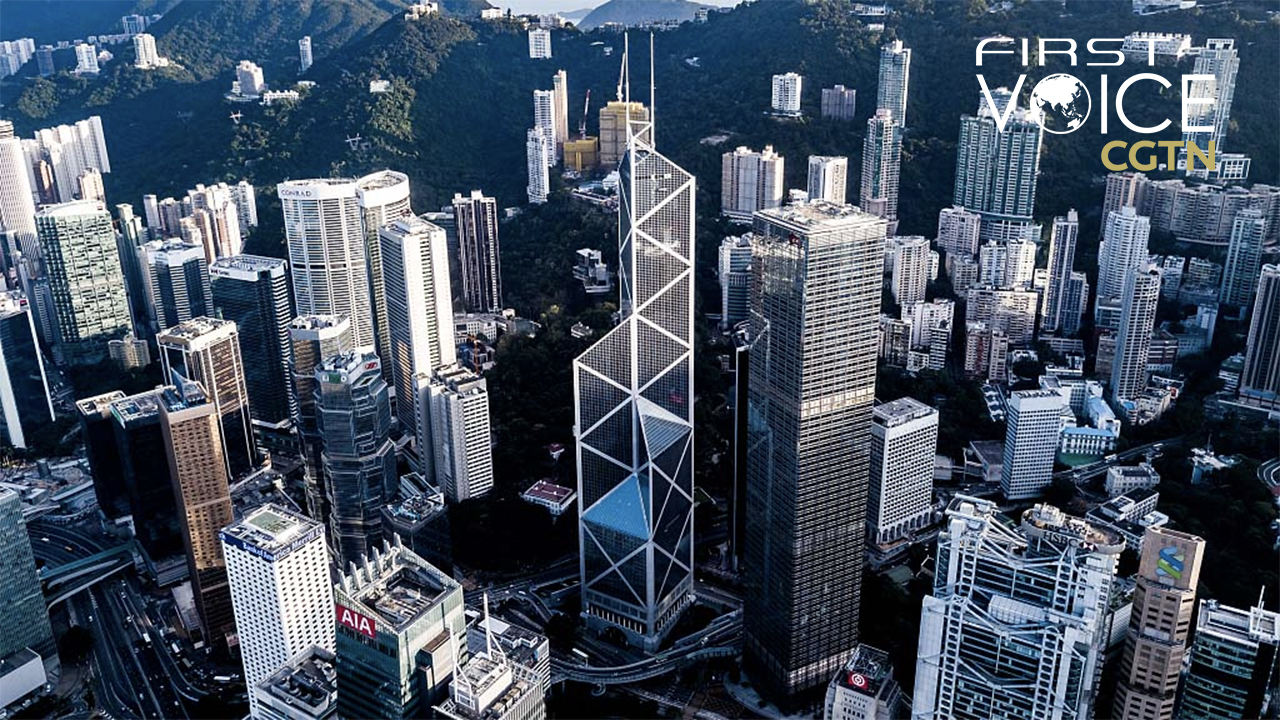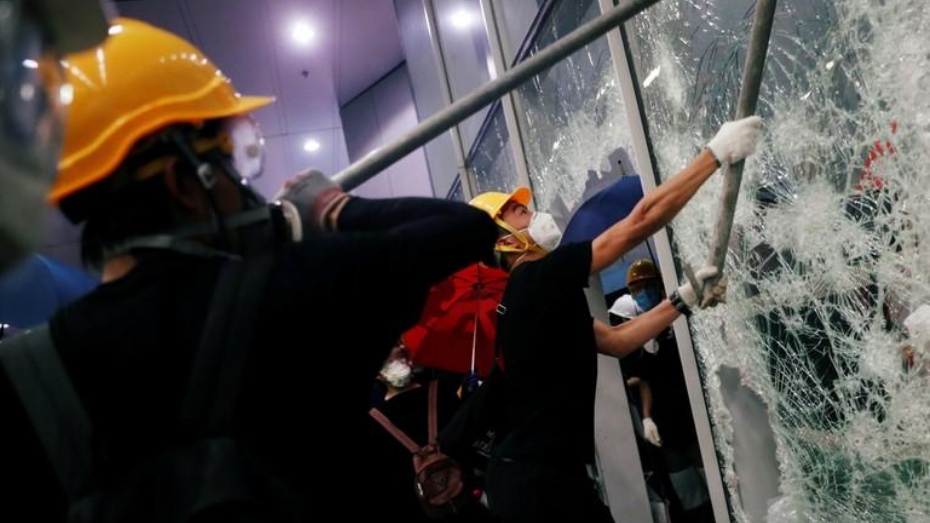
Editor's note: CGTN's First Voice provides instant commentary on breaking stories. The daily column clarifies emerging issues and better defines the news agenda, offering a Chinese perspective on the latest global events.
The national security law for the Hong Kong Special Administrative Region entered into force at 11 pm on Tuesday. It is a milestone in advancing the "One Country, Two Systems" principle, a landmark for refining the central government's policy in relation to the governance of Hong Kong, a guardian of prosperity and stability in Hong Kong, and a turning point to put the city back on its track of development, Zhang Xiaoming, deputy director of the State Council's Hong Kong and Macao Affairs Office, elaborated on the importance of the law at Wednesday's press conference.
Starting in June last year, violent protests have turned the Asian financial hub into a "war zone." The city saw the worst recession since 2009, with its GDP shrinking by 1.2 percent last year. The legal loophole in Hong Kong's ability to safeguard national security is the root cause. It is in this context that the central government introduced the law to plug the loophole.
The law, with 66 articles in six chapters, defines four categories of offenses – secession, subversion, terrorist activities and collusion with a foreign country or external elements to endanger national security – and their corresponding penalties. As Zhang said, it is a sword of Damocles hanging over people threatening China's national security.
Hours after the passage of the law, Joshua Wong, Nathan Law and Agnes Chow, notorious for their role in the months-long violence, announced their withdrawal from Demosisto. The group, which was established in 2016 to advocate "Hong Kong independence," disbanded shortly after its key figures' quit. Several other secessionists have either fled the city or disbanded their pro-independence groups.
The deterrence effect of the law means Hong Kong residents' lives and businesses could eventually return to normalcy without fear of rioters. Zhang said many Hong Kong residents, under the threat of violence, were thinking of migrating to other countries, but the law reignited their hope of continuing to live in Hong Kong.

Protesters break into the Legislative Council building during the anniversary of Hong Kong's return to China, Hong Kong, China, July 1, 2019. /Reuters
Protesters break into the Legislative Council building during the anniversary of Hong Kong's return to China, Hong Kong, China, July 1, 2019. /Reuters
The law will also attract investment from overseas firms that left Hong Kong due to last year's violence. The protests knocked Hong Kong from its place atop the Index of Economic Freedom, a position it had held for 25 straight years. The law is an opportunity to drive the city from violence back to its track of development.
"I am confident that after the implementation of the National Security Law, the social unrest which has troubled Hong Kong people for nearly a year will be eased and stability will be restored, thereby enabling Hong Kong to start anew, focus on economic development and improve people's livelihood," Hong Kong's Chief Executive Carrie Lam said earlier in an official statement.
Since Hong Kong's return in 1997, China has seen a slew of challenges in implementing the "One Country, Two Systems" principle. The law, which Zhang labelled as the second important legislation for Hong Kong following the Basic Law, has drawn a red line on national security that no one can cross. It is thus a milestone in advancing the "One Country, Two Systems" principle and an important step in improving China's system of governance.
Without suspense, the law has triggered concerns among some Hong Kong residents on the city's autonomy. Safeguarding national security does not contradict the protection of freedoms. Without "One Country," autonomy embodied in the "Two Systems" would have never been realized. The central government has reiterated that the law only targets terrorists and external forces with an intention to stir up trouble in China. People are still free to express different political views after the law entered into force.
No country, including Western ones, would tolerate provocation on national security. Hyping the so-called China's "violations" on freedom, the U.S. has enacted several acts on national security, including the USA Patriot Act and the National Security Act of the United States. China's national security law is the basis for freedom. Hong Kong residents have nothing to fear from it.
July 1 marks the 23rd anniversary of Hong Kong's return to China. The national security law is a special gift for the city that will bring it from turmoil to the track of development.
Scriptwriter: Liu Jianxi
(If you want to contribute and have specific expertise, please contact us at opinions@cgtn.com.)